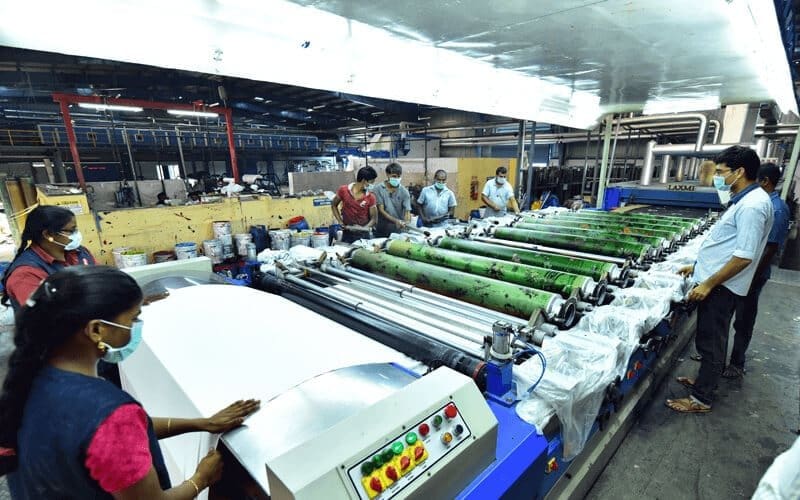Unstable yarn prices, poor procurement, and the high power tariff have affected textile and grey fabric manufacturers from Tiruppur and Coimbatore districts. Hence, they have decided to stall manufacturing for 14 days from November 28, due to which thousands of power loom units will be closed.
Tamil Nadu Textile Entrepreneurs Association’s coordinator K Sakthivel told The New Indian Express, “Unstable cotton yarn prices have severely affected grey fabrics and textiles, due to which we are facing issues. Adding to this is the poor procurement, mainly from North and Western India, and the high power tariff, implemented by Tangedco in September, which has affected production cost.”
“After getting fabrics from the power loom units, we found that the loss came to around Rs 3-4 per metre. We expected orders for Deepavali and accumulated stock, but the demand was very poor. However, we decided not to go on a strike as it would directly affect the workers as well as our business and reduce production by up to 40% for the next few weeks. But now, we have to close our facilities for the next 14 days. We will not procure cotton yarn from the mill on these days. Over 300 large textile manufacturers and weaving units will remain closed. We will also hold a general meeting for the next plan of action after reopening,” he added.
Palladam Powerloom Weaving Units Owners’ Association president P Velusamy said, “This year has been bad for power loom units. Firstly, we demanded a change in weaving charges in January and February this year, following which companies decided to offer different amounts of money for various qualities of fabrics. Then came the issue of yarn price and power tariff, and now the manufacturers have decided to stop supplying warp yarn (paavu nool) for weaving textile goods. Since it is a key ingredient for weaving clothes, we will be forced to stop our machines.”
CITU-Powerloom Weaving Unit Workers’ Association (Tiruppur) secretary R Muthusamy said, “We are confused over the decision of the textile companies closing their businesses for two weeks and are worried about the future of workers. Many are poor with a daily salary of Rs 500-700. Many people, mostly youth, may leave the industry if their income is hit.”

